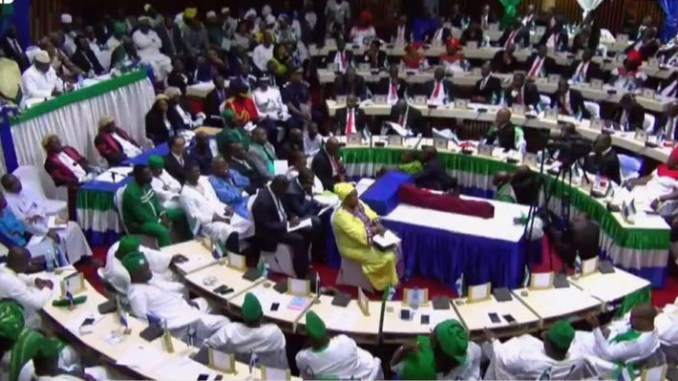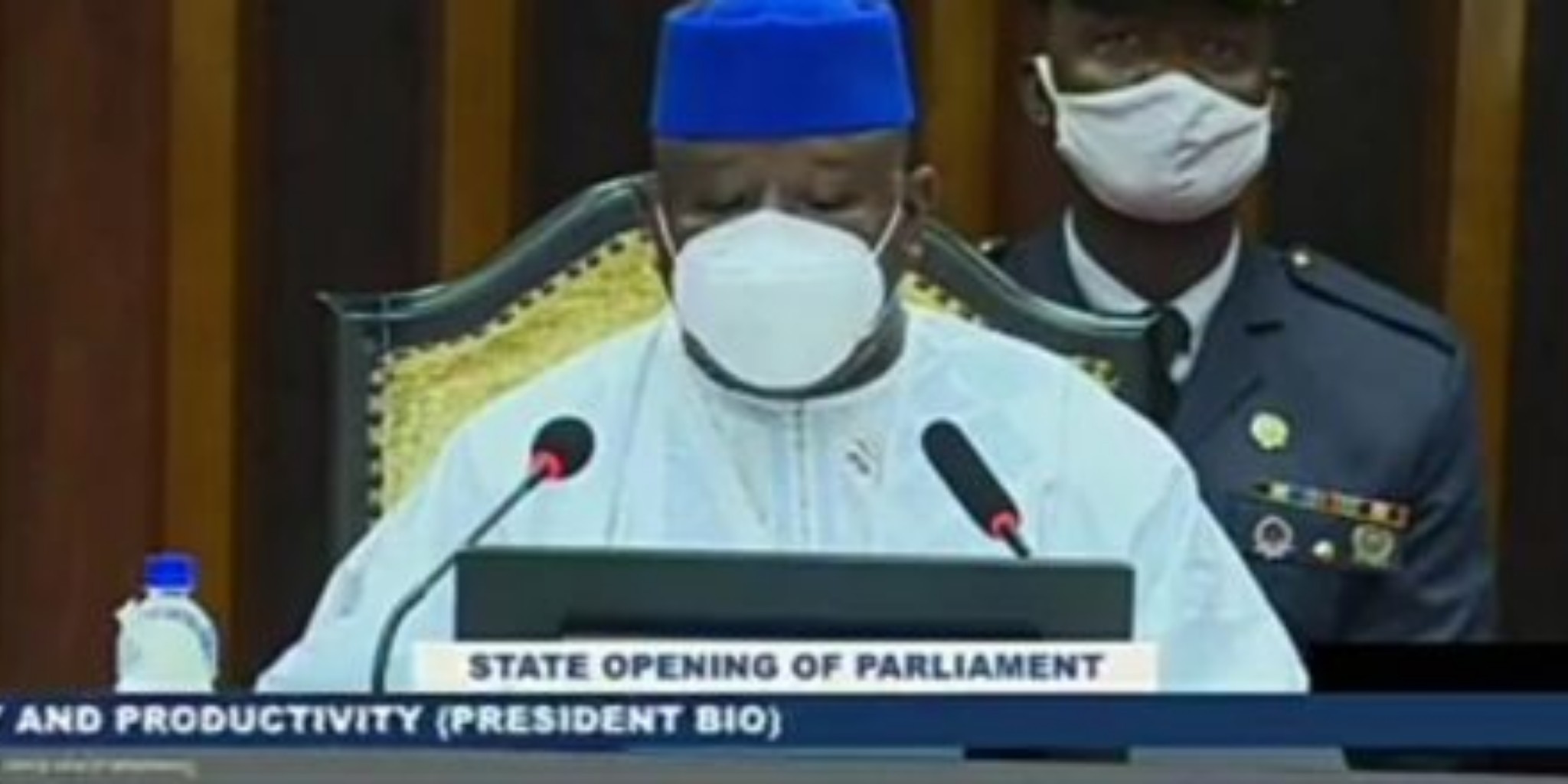Sierra Leone’s President, Julius Maada Bio will today inaugurate the fifth State Opening of Parliament at the Parliament Building in Freetown.
The event is slated to start at 10:00 am. But before the Presidential Speech, at around 9:35 am, the Sierra Leone Armed Forces (RSLAF) mounts the Guard of Honor with the Military Ban. MPs move in to occupy their sits. The President eventually enters the House after the Chief of Defense Staff, the Deputy Defense Minister have arrived, and all other guest sited.
The ceremonial event will mark the start of the 2022-2023 parliamentary year and the presdent will make a speech to set out the agenda for the next parliamentary session.
The State Opening of Parliament marks the start of the parliamentary year. The President usually makes a speech which sets out the government’s agenda and outlines the proposed policies and legislation.

This is the fifth time President Bio will exercise the constitutional mandate since he took over State House in 2018. And it will be the last session of the Fifth Parliament of the Republic of Sierra Leone. The next session will be Sixth Parliament and it begins next year after the election.
The State Opening of Parliament is when the President reads the carefully scripted Speech written by the government. The speech normally entails government achievements in previous years and sets out its agenda and key legislative plans.
When the President leaves after delivering his speech, a new parliamentary session begins and Parliament gets back to work. MPs debate the content of the speech and vote on it. Normally government does not lose in such voting. It’s just a procedure.
Presently, Sierra Leone operates on a Hung Parliament with a total membership of 144 Members. The ruling Sierra Leone People’s Party (SLPP) 58; the main opposition All People’s Congress (APC) 57; Coalition 4 Change (C4C) 8; the National Grand Coalition (NGC) 4; Independents MPs 3 and 14 Paramount Chiefs.
The Forth Session of the Fifth Parliament that came to an end last month was able to pass into law 15 bills out of 39 bills tabled in the House with the remaining 25 pending for enactment by the next Session. The House approved a total number of 44 Presidential nominees to serve in various government capacities.











